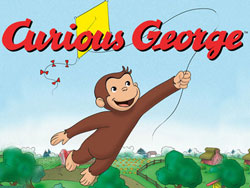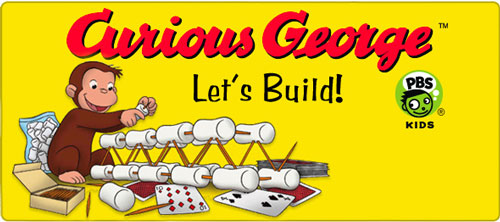 A new study conducted by the New England-based Concord Evaluation Group (CEG) has determined that children who watched episodes of the Curious George PBS KIDS television series or read books based on the Curious George PBS KIDS series were positively impacted in terms of their knowledge about the science and math concepts covered.
A new study conducted by the New England-based Concord Evaluation Group (CEG) has determined that children who watched episodes of the Curious George PBS KIDS television series or read books based on the Curious George PBS KIDS series were positively impacted in terms of their knowledge about the science and math concepts covered.
The study also found that Curious George TV tie-in books prompted children to use scientific habits of mind, such as making predictions, making observations, asking questions, and hypothesizing. It also indicated that parents who read or watched Curious George with their children reported feeling more confident about exploring science and math with their children and reported they were more motivated to do so.
"Science, math, and engineering sound scary, even to adults," said CEG Senior Researcher Christine Paulsen, PHD. "As preschoolers, it's a very different thing. They're learning how to explore, they're learning how to be curious. Across all platforms, Curious George is an educational winner for kids."

The long-running, top-rated PBS KIDS television series, which airs weekdays on PBS stations across the country (check local listings), is designed to inspire kids to explore science, math, and engineering in the world around them in a fun and entertaining way. Based on the best-selling books published by Houghton Mifflin Harcourt, the TV series and tie-in books encourage inquiry and curiosity, promote hands-on exploration, and show parents and caregivers how to support children's science, engineering, and math-related play.
- Children who watched the Curious George episodes and read the Curious George TV tie-in books scored significantly higher on science and math concepts covered.
- The study found that children who watched the Curious George episodes scored better on a test of the science and math concepts covered (i.e., buoyancy, sound, sorting, and plant life) than children who did not watch the episodes. Children who read the Curious George TV tie-in books also scored better on a test of the science and math concepts covered in the books (i.e., measurement, hibernation, colors, and weather) than children who did not read the books.
- Curious George enabled parents to become more comfortable helping their children learn science and math.
- The majority of parents whose children watched the episodes (86%) or read the TV tie-in books (84%) reported that Curious George helped them feel more confident that they could help their children learn about science and math.
I'm a former 7th grade Science teacher turned stay-at-home mom that lives in Houston, Texas. I am married to my college sweetheart and have a beautiful daughter named Riley, who definitely keeps me on my toes! I am also involved in starting a small business which would both manufacture and sell an invention that I've patented, called Toothpaste 2 Go. I love interacting with my readers and hope to learn as much about you as you learn about me!
Melissa @ Mommy Living the Life of Riley!
Add Melissa Cleaver to your LinkedIn Network
Add Mommy Living the Life of Riley to your Google+ circle |









